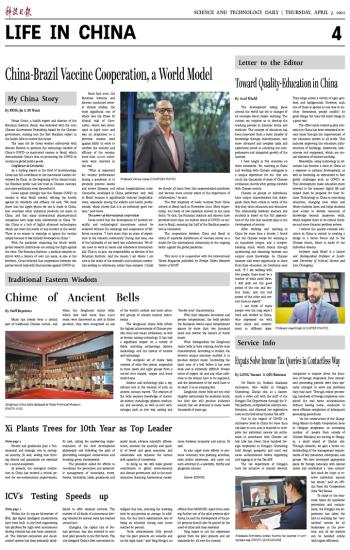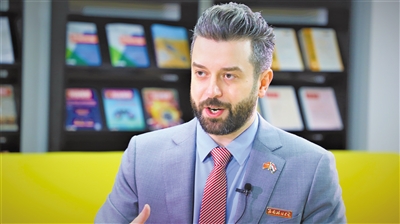
 |
| Professor Asad Khalil. (COURTESY PHOTO) |
The development taking place around the world has led to changes of all concepts about classic teaching. The current era requires us to develop the teaching process in dynamic forms and methods. The concept of education has been renovated from a mere transfer of knowledge through indoctrination, into more advanced and complex tasks and operations aimed at achieving the comprehensive and integrated growth of the learners.
I have taught in five countries on three continents. Yet, teaching in China and working with Chinese colleagues is a unique experience for me. One can touch the thousands of years of Chinese civilization shortly after getting involved with Chinese society.
Chinese as groups or individuals, have unique characteristics that distinguish them from others in terms of the way they value education and educators. The relationship between teachers and students is based on the full appreciation of the role that teachers play in the development of society.
After working and teaching in China for more than a decade, I found that the Chinese recipe for learning is an inquisitive tongue, and a comprehending mind, which means through questioning and reasoning learners can acquire more knowledge. So Chinese learners take every opportunity to learn from their educators. As Confucius once said, "If I am walking with two people, there must be a teacher of mine amid them. I will pick out the good points of the one and imitate them, and the bad points of the other and correct them in myself."
I can think of many people over the long years I lived and worked in China, who impressed me with their talent and commitment in different ways. They range across a variety of ages, genders, and backgrounds. However, each one of those is special in one way or another. Sometimes, people couldn't do great things, but they did small things in a great way.
The effort made toward quality education in China has been witnessed in recent years through the improvement of the education system at all levels. This includes improving the education infrastructure of buildings, classrooms, laboratories and equipment, which are crucial elements of modern teaching.
Meanwhile, using technology in education has become a must in China as a response to national development, as well as becoming an instrument to face global challenges such as COVID-19. This development made education more relevant to the learners' digital life and helped them be prepared for their futures. Technology in China is renovating education, changing how, when and where students learn and helps students have access to diverse resources of knowledge beyond classroom walls, which inspires them to be critical thinkers and more dynamic problem solvers.
I believe the quality-oriented education in China is central to creating a bridge to a better future and to the Chinese dream, which is made of our individual dreams.
Professor Asad Khalil is a lawyer and Distinguished Professor at Southwest University of Political Science and Law, Chongqing.







